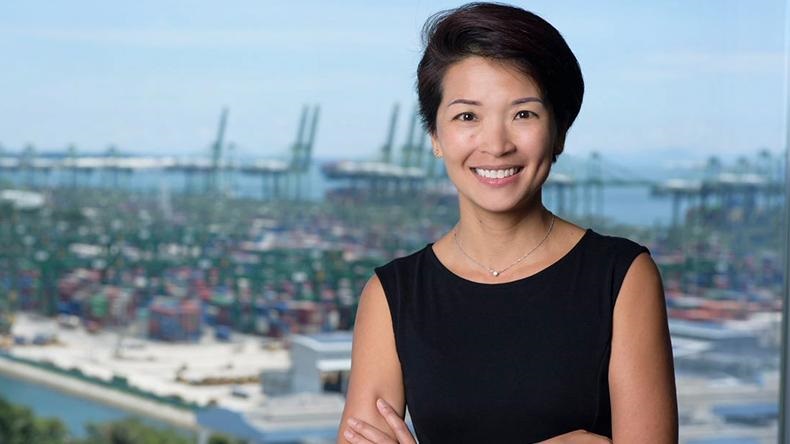Our new NorthStandard site is now live. There will be no new content or updates added to this site. For the latest information, please visit our new site north-standard.com.
「第四次推進革命」とグリーンな海事産業への準備
海運業界が環境に優しい取り組みを実践するという問題にどのように取り組んでいるか、2人の業界専門家が、輸送における代替燃料と脱炭素化に関するインサイトを提供します。

脱炭素化時代は刻一刻と迫ってきています。全ての業界が適応する必要があり、海事業界も例外ではありません。現在国内外および地域での規制が進行中であり、開発中の代替燃料と運用慣行が精査されています。
スタンダードアジアのマネージングディレクターであるDavid Roberts氏は、昨年設立されたシンガポールを拠点とするNGOである海上脱炭素化グローバルセンター(Global Centre for Maritime Decarbonisation: GCMD)CEOであるLynn Loo教授と会談し、最新の Alongsideポッドキャストで「第4次推進革命」とその海運への影響について話し合いを持っています。
Loo教授は、センターの使命は国際海運セクターが温室効果ガス排出量を削減するための手助けとなることだと説明します。「その実現のために、史上初のプロジェクトへの投資を通して、将来的な燃料におけるスタンダードの形成をサポートしていくのです。そして、現実の世界での運航条件や考え方の下で低炭素ソリューションや技術を試験的に運用しています」と続けます。
またRoberts氏は、IMOの意図として業界と当クラブが「この重要な分野で独自の専門知識を発達させ、移行過程においてメンバーにアドバイスと支援を提供できるようにする」必要があることを表していると付け加えます。
GCMDは、資金面での軽度のサポートから新エネルギー試験への積極的な関与まで、パイロットスキームに参加するための支援を求めています。「私たちはエンジニアと科学者から成るグループですから、デューデリジェンスを実施し、問題点を理解し、パイロットスキームの様子を見ながら、これらの問題に対処していくことができます」とLoo教授は付け加えます。
海上およびエネルギーを専門とする保険会社であるスタンダードクラブのメンバーは、クラブから代替燃料の導入に関するガイダンスと支援を受けています。
運営管理上のハードル
業界の多くのエリアでは「移行への準備ができている」とDavid Roberts氏は説明します。しかしながら、その準備が整っていないエリアが存在するのも事実です。いずれにしても課題はかなり山積みされており、スタンダードクラブの方から業界一丸となった対応を推進してきた理由はここにあります。
「遅れを取り戻すためにも、短い期間に一気にまとめて取り組みたいのです」とポッドキャスト内でRoberts氏は語っています。
同氏によると、スタンダードクラブのメンバーの多くは、2023年1月の最終期限に合わせて準備が整っているか、近いうちに準備が整うよう現在調整をしています。しかし、経済的および輸送上の課題は残っています。
Loo教授は、脱炭素化への移行には各ステークホルダーや外部関係者の協力が不可欠であると説明しています。
ゼロカーボン燃料は最終的な目標であり、特にグリーン水素には、あらゆる業界において多くの最終用途がありますが、その一つとして、海運部門向けに、アンモニア、メタノールまたは合成燃料のいずれかであるグリーン燃料を生成することがあります。
それでも、グリーン燃料への取り組みは諸刃の剣とも言えます。海運会社は必要な対策を講じることに関しては多くの関心を持っていますが、このようなエネルギー源の多くは他の場所で開発されています。
「私たちが業界外の組織の状況に左右されてしまう感じはぬぐえません。これまでバンカー燃料として使用したことのない新しい燃料であるため、インフラについても新しい視野で考える必要があります」とLoo教授は話します。
David Roberts氏は、新技術と燃料は利用可能ではあるものの、実際的にはまだ実験段階にあると付け加えています。
GCMDはいくつかの試みを実践していますが、現在のインフラ基盤はそれらに対処するのに十分ではなく、地球規模でどう調整をしていくかということ自体が課題となっています。世界各地の船舶ならびに港湾はこれまでのエネルギーの利用を考慮して設立されており、そこから離れる動きを起こす際には、新しい技術や船舶、そしてエンジンの設計が必要となります。
「事実上、私たちは第4推進革命を経験しているようなものです。最初に世界は 石炭と蒸気を活用して発展し、次に石油へと移り、現在はゼロカーボン燃料に目を向けています」とRoberts氏は語ります。
資金問題やどこで最初にテスト運用をするかなどを考慮する以前の段階で、このような輸送上の課題は既に存在します。「だからこそGCMDのような組織の存在が非常に重要なのです」とLoo教授は述べています。
GCMDは、環境に配慮した輸送方法の将来的な可能性としてアンモニアを検討しています。最初のエンジンは2024年に、そして最初の船舶は 2025年に実用可能になるとみられています。
アンモニアを実用化することで、化石燃料への縛りから解放される可能性があることはこれまでに広く認められてきましたが、船舶用燃料としてアンモニアを考えた際に、燃料補給に関する安全性の欠如が歴史的に問題となっています。「アンモニアの燃料補給とアンモニアの燃料としての使用に伴う安全ガイドラインがないため、実際にアンモニアの燃料補給を試験的に運用できないことを早い段階で気付かされました」とLoo教授は話します。
これはまさに業界が直面している問題の縮図です。新燃料の試験からその使用に関する基本的な安全ガイドラインの作成まで、導入前に乗り越えねばならないハードルが多くあるのです。
保険の適応
「P&Iクラブのシステムは約150年間続いており、私たちはメンバーを守るために、新しい課題や状況におけるニーズに応えるために常に保険がカバーする補償範囲を適応させてきました」とRoberts氏は述べています。
新燃料の導入にあたる主なリスクは、乗組員の怪我、病気または死亡のリスクです。その他には、汚染、環境への悪影響、罰金、および法的要件への違反に対して国際機関によって科されるその他の関連罰則があります。
P&I保険の補償範囲は、すでに極端な状況の多くに対応するよう設定されていますが、新しく登場するリスクや想定外のリスクは考慮されていないという課題があります。だからこそ相互保険の柔軟性が非常に重要となってきます。
「現段階でまだ完全には把握できていない、または十分に認識していない特定のリスクに対応するために保険補償内容を微調整または強化する必要が出てくる場合は、こういった形での調整を検討すると思います」とRoberts氏は付け加えます。
明るい未来のために
専門家は、環境に優しいシステムへの移行に関してはフラストレーションが先立つのではなく、多方面で熱意が見られるという見解を持っています。むしろIMOの目標はもっと厳しいものである必要があるという批判の声が出ているほどで、コンプライアンス遵守に遅れが出る可能性があります。
Loo教授は、GCMDは代替燃料への歩みを加速させるものであるとしています。脱炭素化の問題はもはや「できるかどうか」ではなく、「いかに速く実現できるか」となっています。
「地球環境を救うということについては楽観的な見方があります」とRoberts氏は胸を張ります。「石油とガスの価格が上昇する中で今後も各種調査や開発に拍車がかかると思われますが、2050年までには世界のエネルギー供給の少なくとも半分が非化石燃料でまかなわれることが予想されます」
「それにはパートナーシップが大きな役割を担います。私たちは、海洋エコシステムだけでなく、実際にはより広い経済および金融エコシステムの中で活動しているわけですから、皆がお互いを支え合わなければなりません」と同氏は付け加えます。
これにはLoo教授も同意し、海運業界が持つ性質としての各種業界との綿密な関連性を改めて強調します。
「船舶輸送は、世界規模でのサプライチェーンにおける不可欠な部分です。私たちが脱炭素化しなければ、多くのセクターが脱炭素化へと進むことはできません」
「代替推進力の開発に加えて、GCMDとスタンダードクラブの両者は一般的な認識を深めるためのはたらきを担う立場にいるのです」と同教授は述べます。

Administrative hurdles
Many parts of the industry are "ready for the transition", David Roberts explains. Others, however, are less ready. Nevertheless, the extent of the challenge is significant, which is why Standard Club has been promoting a collective response.
"We're trying to make up for lost time by doing a whole load of stuff in a concise period," David Roberts told the podcast.
According to David Roberts, a high proportion of the Standard Club members show they are either ready or will shortly be prepared in anticipation of the January 2023 deadline. But financial and logistical challenges remain.
Professor Loo explained that there is a reliance on stakeholders and external players for shipping to decarbonise.
Zero carbon fuels are a final goal and green hydrogen, in particular, has many end applications for every industry. One is to generate green fuels, whether ammonia, methanol, or any synthetic fuels, for the shipping sector.
The drive towards green fuels is thus a double-edged sword. Shipping firms have every interest in taking the necessary steps, but the development of many of these energy sources is coming from elsewhere.
"We're sort of at the mercy of players outside the sector. It requires us to think about new infrastructure because these are new fuels that we've not used as bunker fuels before," Professor Lynn said.
David Roberts added that the new technologies and fuels, while available, are still effectively experimental.
GCMD is trialling some, but the infrastructural base is not currently sufficient to deal with them, and global-scale revision is a challenge in itself. Vessels and ports across the world are built to rely on traditional energy and a move away from that will require new technologies, ship and engine designs.
"We're going through effectively a fourth propulsion revolution. First, the world developed through coal and steam, then to oil, and now we're looking at zero-carbon fuels," David Roberts said.
All of these logistical challenges are present even before one considers the financial cost and who is willing to be the first to trial these new energies. "This is why organisations like GCMD are so important," Professor Lynn said.
GCMD is looking at ammonia as a potential future for your green shipping. The first engine is said to be available in 2024, and the first ship in 2025.
Ammonia has been widely hailed as a potential escape from fossil fuel entanglement, but the lack of safety associated with bunkering ammonia as a marine fuel has historically been problematic. "We realised quickly that we can't actually do a pilot to bunker ammonia because there are no safety guidelines associated with bunkering ammonia and using ammonia as a fuel," Professor Lynn said.
This is a microcosm of the problems the industry faces: from testing a new fuel to drawing up basic safety guidelines for its use, there are many hurdles to be jumped before a new fuel type can be adopted.
Adapting insurance
"The P&I Club system has been going for about 150 years; we have adapted our cover always to meet the needs of new challenges, new situations, for the protection of our members," David Roberts said.
The primary risks of introducing new fuels are injury, illness or death risks to the crew. Others are pollution, environmental damages, fines, and other related penalties imposed by international authorities for breach of the statutory requirements.
P&I coverage is already set up to respond to many extreme situations. However, there is an issue that emerging risks and potentially unforeseen risks are not considered. This is where the flexibility of mutual insurance is most essential.
"If it becomes necessary to tweak or enhance the cover that we give to respond to, to particular risks that we don't yet fully understand or not fully be aware of, at this point in time, then we would consider such adjustments," David Roberts added.
Brighter shores
Rather than frustration, there is broad enthusiasm for the green shift, the experts said. If anything, IMO targets are being criticised for not being harsh enough, which could result in late compliance.
Professor Lynn explained that GCMD intends to accelerate their journey towards alternative fuels. The question of decarbonisation is no longer "if". It's "how fast".
"There is optimism in saving the planet," David Roberts said. "Higher oil and gas prices will probably spur increased exploration and development, but by 2050, we should be looking at a situation where at least half of global energy supply is coming from non-fossil fuels."
"It is very much about partnership. We live in an ecosystem, a maritime ecosystem, and indeed a wider economic, financial ecosystem, and we all have to support each other," he added.
Professor Lynn agreed, referring back to the integrated nature of maritime.
"Shipping is such an integral part of the global supply chain. If we don't decarbonise, many sectors can't decarbonise," she said.
“Alongside developing alternative propulsion, both GCMD and Standard Club have the ability to raise awareness.”
カテゴリー: Alternative Fuels

